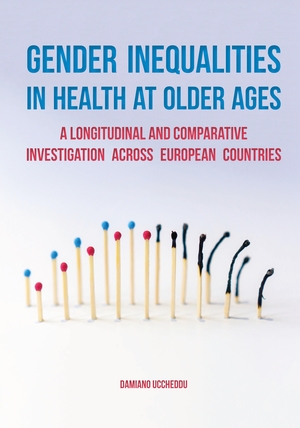Monday 28 March 2022 Damiano Uccheddu successfully defended his thesis entitled ‘Gender inequalities in health at older ages: A longitudinal and comparative investigation across European countries‘.
Gender inequalities in health have been the topic of much research in the past decades, and reducing them is one of the main objectives of active and healthy ageing research and policy. In virtually all societies women live longer than men, yet systematically report higher rates of morbidity, disability, and healthcare utilization. However, the mechanisms behind the gap, as well as the underlying cross-national differences are not well understood.
In this thesis, the relationship between gender and health in later life is approached from different perspectives, analysing data from 28 countries participating in the Survey of Health, Ageing and Retirement in Europe (SHARE) and Dutch administrative data from the System of Social-statistical Datasets (SSD).
Three important conclusions can be derived from the dissertation. First, social and economic resources impact the health of older women and men differently across countries belonging to different welfare regimes. Women, as compared to men, are particularly affected by their socioeconomic position, especially in sub-protective welfare contexts. Second, early-life family and work trajectories are associated with health in later life differentially for men and women, and across institutional contexts (i.e., welfare states). Accumulated stress and care responsibilities over the life course – and the institutional framing of these – are very important for health in later life, and especially for women. Third, life course interdependencies with “significant others” (i.e., children and partners) are important for health in later life. Just as individual life-course events are relevant for the health of older men and women, so too are the health consequences originating from the bonds with other family members.
The long-term consequences of accumulated stress, disadvantages, and family responsibilities that originate in the early stages of the life course might be more important than single life course events experienced after mid-life. This dissertation stresses the need for a wide and integrated approach to the study of family responsibilities and inequalities to better understand the links between gender and health at older ages. In conclusion, this study addressed key policy-relevant gaps in existing research, contributing to knowledge that may inform policy supporting high-quality healthy ageing and equal opportunities for both men and women.
Damiano did his PhD project at NIDI as part of the project Care, Retirement & Wellbeing of Older People Across Different Welfare Regimes (CREW), funded by the Joint Programming Initiative More Years Better Lives 2017–2020.
For more information see the University of Groningen website.

